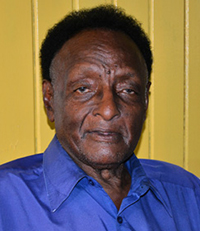Appellate Court freed appellant after hearing ‘acting in concert evidence’
THE appellant Sahadeo Satoopersaud was convicted of robbery with aggravation, consisting in the fact that he acted together with two other persons unknown.
The evidence showed that while the appellant was robbing C. B. two other persons were robbing her daughter L. B.
The trial judge told the jury that it was ‘quite permissible to charge (the appellant) in the present manner as having acted together with certain other persons unknown”, but did not direct the jury that it was necessary to find that the appellant and the unknown men were acting in concert.
On appeal
Held: The jury should have been directed that before they could find the appellant guilty of the offence charged, they must find that he was acting together or in concert with the two unknown men with the common purpose or design, of robbing both C.B. and I. B.
The omission so to direct the jury, might well have left them with the impression that the mere presence of the two unknown men with the appellant at the particular time, would have been sufficient for them to conclude that they had been all acting in concert.
Appeal allowed.
K. Prashad for the Appellant.
G. Pompey for the Crown.
The Court of Appeal was constituted by Luckhoo J. A., Persaud and Cummings JJ.A.
Justice Luckhoo delivered the judgment of the court. He said: The appellant was convicted of the offence of robbery with aggravation contrary to s. 222 (b) of the Criminal Law (Offences) Ordinance, Cap.10. and was sentenced to imprisonment for two years and ordered to receive a whipping of six strokes.
“Sahadeo Satoopersaud on the 22nd day of August … together with certain other persons unknown robbed Chinma Baburam and Iris Baburam of two pairs of bangles.”
The case for the prosecution was that the appellant during a dark night, forcibly removed a pair of bangles from the hand of Chinma Baburam and that two other unknown persons at the same time and place forcibly removed a pair of bangles from the hand of Iris Baburam, the daughter of Chinma Baburam.
The particulars of the offence charged related them to two robberies, and the circumstances of aggravation consisted of the presence of two other persons unknown, acting together with the appellant when Chinma Baburam and Iris Baburam were robbed.
In general an indictment must not be double; that is to say, no one count of an indictment should charge the prisoner with having committed two or more separate offences; but an indictment may charge the prisoner, in the same count, with felonious acts with respect to several persons if it was all one transaction.
Counsel for the appellant raised as his main objection to the summing-up, the failure of the trial judge to direct the jury as to what in law constituted acting in concert, in as much as the aggravating circumstances.
Circumstances in the particulars of an offence required the appellant to be acting in concert with persons unknown, if he was to be found guilty of the offence for which he was charged.
All that the trial judge told the jury on this aspect was – “The aggravation alleged by the Crown is that the accused person acted with certain other persons unknown…..
The case for the Crown is that the accused acted in concert with other men who are not known to the Crown. If they were known, naturally, as you might expect, they would have been in the dock alongside of the accused. But that does not make any difference to the offence charged against the accused, for it is quite permissible to charge him in the present manner as having acted together with certain other persons unknown. That should not give you any difficulty to understand.”
There was no direction of any kind to indicate what in law is meant by acting in concert (and the Crown concedes this to be the case) and, consequently the facts of the case were never considered in the light of such a direction which should have been given.
On the evidence, the two unknown men in no way interfered with Chinma Baburam and the appellant in no way interfered with Iris Baburam. The jury were never told that if they found that the two unknown men were acting independently of the appellant when he removed the bangles from Chinma Baburam and when they (the unknown men) removed the bangles from Iris Baburam, then the appellant could not be convicted of the offence as laid.
The jury should have been directed that before they could find the appellant guilty of the offence charged, they must find that he was acting together or in concert with the two unknown men with the common purpose or design of robbing both Chinma Baburam and Iris Baburam.
The omission so to direct the jury may well have left them with the impression that the mere presence of the two unknown men with the appellant at the particular time, would have been sufficient for them to conclude that they had been all acting in concert.
Justice Luckhoo concluded: I am unable to say that the jury would inevitably have come to the same conclusion if they had received the directions which in law should have been given.
I am not unmindful of the fact that the jury having convicted the appellant on the indictment must have accepted the evidence of the prosecution, but to have convicted the appellant as they did, they had to find that he was acting in concert with others both in respect of Chinma Baburam and Iris Baburum, and in the absence of a proper direction on this aspect, it is not known what verdict they would have reached and so it would be unsafe to allow any part of the conviction to stand.
For the above reasons the appeal is allowed and the conviction and sentenced quashed.
Appeal allowed.











